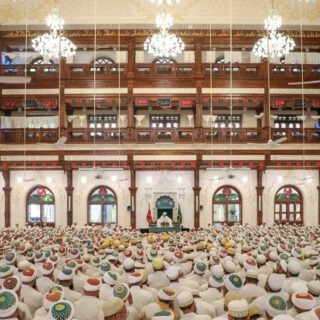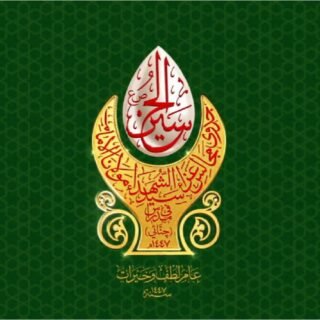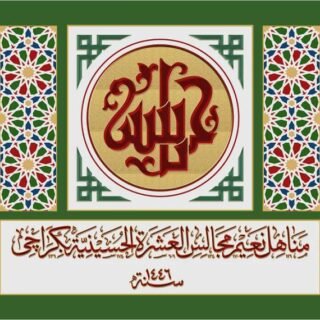Verily, Allah aided you in Badr when you were vulnerable; fear Allah so that you may show your gratitude.
The Battle of Badr was the first of the great battles of Islam. Badr is about 80 miles from Medina, and more than 200 miles from Mecca.
The Quresh of Mecca had seized the wealth of the Muslims following their immigration to Medina with RasulullahSAW. Also a large trading caravan of Quresh, led by Abu Sufyan, was returning to Mecca from Shaam; the kuffar planned to use the profits from the caravan to wage war against RasulallahSAW.
RasulullahSA decided to meet the caravan at Badr, accompanied by a little over three hundred men. Two were on horseback, seventy had camels and the rest were on foot. Amir ul MumineenAS, barely eighteen years old at the time, was the flag bearer of the army. They camped in the hills near Badr.
Abu Sufyan, fearing the Muslim army, sent desperate word to Mecca. In response, Abu Jehl amassed an army of a thousand men, and hundreds of horses and camels and marched to Badr. Meanwhile the caravan, under Abu Sufyan, diverted its route to Mecca to avoid confrontation at Badr. The violent Abu Jehl, however, in his arrogance and hatred of RasulullahSAW and Islam continued towards Badr confident of crushing the small Muslim army.
The army of the kuffar camped in the valley. The night before the battle, there was a deluge of rain, which turned the valley into a treacherous slippery mud field. On the other hand the rain settled the sand and made the ground firm and compact in the hill area where the Muslims were stationed. This was a miracle of RasulullahSAW; it became a great advantage during the battle.
The Quresh launched the attack. As per Arab custom, it was decided that the war would begin with one-to-one combat. The well-known Quresh warriors, ‘Utba bin Rabi’ah (the father in law of Abu Sufyan), his son Walid and his brother Sheibah came to challenge the Muslims. All of Rasulullah’sSAW faithful companions were ready to be called upon to fight, but RasulullahSAW chose from those closest to him to take on the kuffar. He called upon his brother, wasi and wazir AliAS, his stalwart uncle Hamza and the faithful Obaida bin Harith to face the three warriors. Amir ul mumineenAS destroyed Walid and Hamza finished off ‘Utba. Then they both assisted Obaida against his opponent Sheibah. Obaidah bin Harith was the first martyr of the battle: he died after losing his leg.
Rasulullah’sSAW army attacked en masse. The Muslims, led by Ameer ul mumineenAS, slew the enemy, one by one. Awed by the great power and skill of Maulana AliAS, and the fervor of the faithful companions, the kuffar army lost their nerve. Terrified, they beat a speedy retreat.
Allah granted RasulullahSAW a resounding victory at the hands of Maulana AliAS. The angels fought the kuffar in Badr, as testified by the Quran. 14 people were killed from the Muslim army; on the other hand, 70 kuffar were killed, including their leader Abu Jehl. Amir ul mumineenAS single handedly killed a great many of them. The death of ‘Utba; father of Hind, at the hands of HamzaAS laid the seeds of bitter hatred in Hind’s heart. She swore to avenge her father. The Muslims took seventy prisoners of war, but they were treated with kindness and mercy. Some of them later converted to Islam.
News of the first victory of Islam—how the mighty Quresh were defeated at the hands of a small Muslim army and the standing of the young Maulana AliAS as an invincible warrior– spread far and wide amongst the tribes of the Arabian peninsula. This greatly strengthened the foundations of the Islamic state and made the Muslims a force to be reckoned with.









